European Government Consulting
Monitoring and benchmarking ICT markets to offer economic and policy analysis to EU decision makers

-
Explore
Consulting and research support to the European Commission and other EU Institutions for the development of research and innovation Strategies
-
Align
Research and consulting services package for Horizon 2020 collaborative projects in partnership with European Vendors, Research Centres and Academia
-
Engage
Offline and online stakeholder engagement activities. Organization of thematic events, networking sessions, workshops
Leveraging IDC value for the EU community
From Big Data to Internet of Things, our portfolio covers a wide array of research domains. Explore our current and past research and consulting projects.
Data Spaces – PiSTiS
Promoting and incentivising Federated, Trusted, and fair sharing and trading of interoperable data assets
PiSTiS
Promoting and incentivising Federated, Trusted, and fair sharing and trading of interoperable data assets
In the era of data-driven organizations, there has been a paradigm shift in viewing data as a valuable asset rather than just exhaust from information systems. However, despite the exponential growth of data production, its full potential is often underutilized, with around 80% of industrial data not effectively used. Data sharing has become essential for AI and driving insights in the digital economy, leading to the adoption of legislative acts and the emergence of data spaces. However, data sharing faces challenges such as technical, cultural, economic, and legal barriers. Organizations tend to focus on collecting and analyzing their own data rather than sharing it. Data quality, interoperability, and accessibility pose additional challenges. Data consumers struggle to find and access relevant data. Data sharing contracts and intellectual property rights also complicate the process. Current economic practices struggle to measure the value of data accurately. The PISTIS solution aims to address these challenges by providing a federated data sharing and monetization platform that builds trust among stakeholders, eliminates data silos, and creates fair and transparent data markets. The platform focuses on data management, interoperability, governance, secure data sharing, data valuation, and monetization. By establishing appropriate methods and technical foundations, PISTIS aims to unlock the untapped potential of data assets and facilitate collaboration, innovation, and value creation in the data ecosystem.

Data Spaces – UPCAST
Universal Platform Components for Safe Fair Interoperable Data Exchange, Monetisation and Trading
UPCAST
Universal Platform Components for Safe Fair Interoperable Data Exchange, Monetisation and Trading
UPCAST offers universal, transparent, and user-friendly data market plugins for automating data sharing and processing agreements between businesses, public administrations, and citizens. These plugins enable actors in European data spaces to design and deploy data exchange and trading operations with features such as automatic agreement negotiation, fair pricing, improved data discovery, privacy protection, low environmental impact, and compliance with relevant legislation and ethical guidelines. UPCAST consolidates mature research in data management, privacy, monetization, and automated negotiation to support the deployment of European data spaces while considering efficiency and compliance. Real-world pilots across Europe will implement platform plugins for data sharing, monetization, and trading, ensuring digital autonomy and interoperability. The project aims to engage SMEs, administrations, and citizens by providing a transferability framework, best practices, and training to maximize the project’s impact.
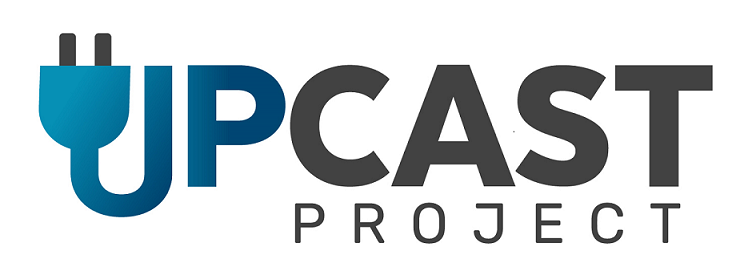
Data Spaces – GREAT
Green Deal Data Space
GREAT
Green Deal Data Space
The project GREAT has been assigned the task of establishing the foundation for the Green Deal Data Space (GDDS) and the Community of Practice. These are essential prerequisites for the future implementation of the GDDS, which aims to integrate existing data ecosystems into a unified system. The project involves a pan-European network from various sectors and aims to implement a framework with five pillars: Minimum Viable GDDS for valuable datasets, a technical architecture blueprint for interoperability, a multi-stakeholder governance scheme, a roadmap for implementation, and an open pan-European Community of Practice.
The design of the GDDS framework incorporates these five elements and is guided by the requirements of use cases related to the 2030 Biodiversity Strategy, Zero-pollution Action Plan, and Climate Change Adaptation Strategy of the Green Deal. The GREAT project leverages the expertise of an 11-partner consortium and three affiliated entities, which have direct links to over 1,000 stakeholders and more than 100 initiatives at national and international levels. The consortium’s network of stakeholders spans across multiple sectors, including Land, Ocean & Maritime, Atmosphere & Climate, Disasters Geohazards Emergency, Security & Safety, and Built Environments. The consortium brings together expertise in data governance, distributed data infrastructure design, large-scale system integration, data value chains, and stakeholder engagement.

Data Spaces – PLOOTO
Product Passport through Twinning of Circular Value Chains
PLOOTO
Product Passport through Twinning of Circular Value Chains
Plooto is an initiative aimed at addressing the growing demand for scarce resources and critical raw materials by promoting resource efficiency, responsible waste management, and recycling. They have developed a Circular and Resilient Information System (CRIS) to support manufacturers in their transition to sustainable and circular practices. CRIS enables waste reduction, traceability of Secondary Raw Materials (SRMs), and real-time decision-making through digital services. Plooto plans to pilot their solution in three diverse supply chains to demonstrate the benefits of their approach. The first pilot focuses on using citrus waste from orange juice production to recover valuable compounds, which can be used in animal feed, food industry molasses, and cosmetics. The second pilot aims to reuse waste from the production of composite materials (CFRP) for drones, creating a circular value chain. The third pilot utilizes Waste Electrical and Electronic Equipment (WEEE) to extract valuable magnets for increased usage.
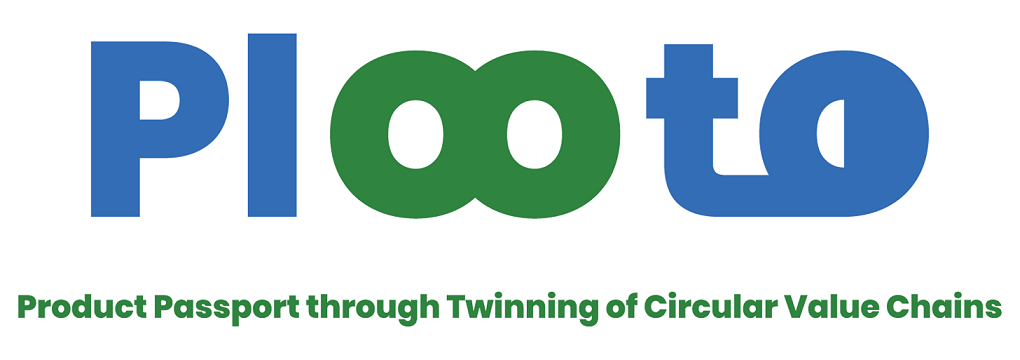
Data Spaces – DATA SPACE 4.0
Setting the Pathway Towards a Common European Manufacturing Data Space
DATA SPACE 4.0
Setting the Pathway Towards a Common European Manufacturing Data Space
Data Space 4.0 is an Industry 4.0 community that aims to create a unified voice and a governance model to scale up cross-sectorial data spaces in manufacturing. It supports collaboration among stakeholders to establish a harmonized and autonomous rollout of a sovereign European manufacturing data space continuum. The community brings together national Industry 4.0 initiatives, European data space think tanks, industrial associations, knowledge and innovation networks, data 4.0 model standardization initiatives, and European networks for SME digital transformation. Their goal is to identify common principles for sharing industrial data at the EU level. Data Space 4.0 is open to the digital and manufacturing community interested in unlocking new data-powered business models and developing data value chains. It aims to secure growth and economies of scale for future data spaces in manufacturing, with a focus on secure, fair, sovereign, responsible, and cost-effective data sharing in areas such as dynamic asset management, predictive maintenance, and agile supply chain management.
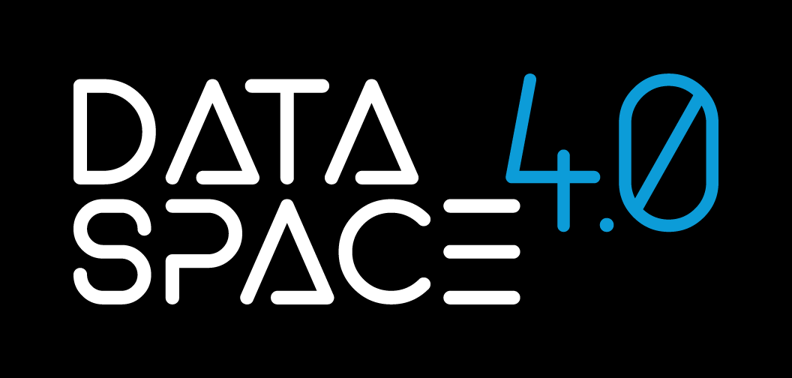
High Performance Computing – Graph-Massivizer
Extreme and Sustainable Graph Processing for Urgent Societal Challenges in Europe
Graph-Massivizer
Extreme and Sustainable Graph Processing for Urgent Societal Challenges in Europe
Graph-Massivizer is a research project developing a high-performance, scalable, and sustainable platform for processing and reasoning with massive graph representations of extreme data. It offers five open-source software tools and FAIR graph datasets, covering the entire lifecycle of processing extreme data as massive graphs. The tools prioritize usability, intelligence automation, performance modeling, and environmental sustainability. They support stakeholders from diverse organizations, enabling them to leverage extreme data through massive graph programming and processing. Graph-Massivizer validates its innovation through four use cases focused on sustainable green finance, global environment protection foresight, green AI for the automotive industry, and data center digital twin for exascale computing. It aims to achieve significant efficiency gains and energy awareness compared to existing solutions, with improved analytics efficiency and energy efficiency for storage operations. The project also strives for enhanced data center energy efficiency and lower greenhouse gas emissions for graph operations. Graph-Massivizer brings together a diverse group of twelve partners, including universities, research centers, HPC centers, SMEs, and large enterprises, leveraging European expertise in graph processing and serverless computing and utilizing advanced European computing infrastructure.
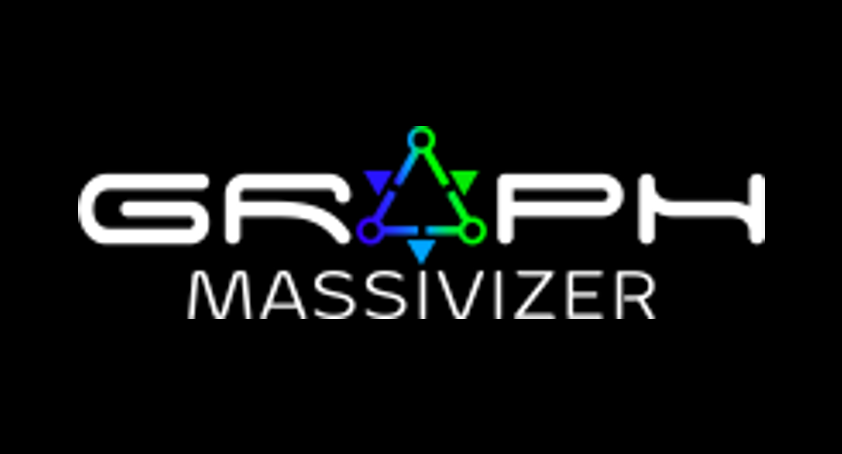
Computing Continuum – HiPEAC
High Performance, Edge And Cloud computing
HiPEAC
High Performance, Edge And Cloud computing
HiPEAC aims to stimulate and strengthen the European computing ecosystem to drive digital transformation. It guides research and innovation in key technologies and sectors, with the goal of enhancing European leadership in the global data economy and promoting human-centered technologies. HiPEAC mobilizes European partnerships and stakeholders to develop next-generation computing technologies, infrastructure, and service platforms. By connecting existing initiatives, involving key stakeholders, and improving market conditions, HiPEAC facilitates rapid technological development and market uptake. The focus is on advancing hardware and software, fostering digital autonomy, and driving economic growth and job creation. HiPEAC supports the European value chains in computing and systems technologies, spanning from cloud to edge computing and the Internet of Things (IoT).
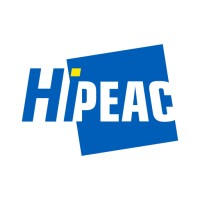
Digital Skills – LeADS
Leading Europe’s Advanced Digital Skills by providing knowledge, guidance and best practices to shape the digital future
LeADS
Leading Europe’s Advanced Digital Skills by providing knowledge, guidance and best practices to shape the digital future
In the past decade, advanced technologies have made significant progress, presenting challenges where digital skills play a crucial role in employment and societal engagement. Despite progress during the Covid-19 pandemic, Europe (EU) still faces difficulties in addressing digital skill gaps and providing high-quality training. The 2022 DESI report indicates that only 54% of Europeans aged 16-74 possess basic digital skills, while the target for 2030 is at least 80%. To address this, LeADS, part of the Digital Europe Programme, aims to understand changing demands for Advanced Digital Skills (ADS) and provide roadmaps and guidelines to education and training communities. LeADS will align interventions with market gaps, collaborate with industries for training and upskilling the workforce and communities.

Data Spaces – DATES
European Data Space for Tourism
DATES
European Data Space for Tourism
DATES is an ambitious EU project aimed at advancing the deployment of a secure and trusted tourism data space. Our primary objective is to ensure transparent control over data access, use, and re-use, while fostering collaboration among stakeholders. To achieve this, the project focuses on developing effective governance and business models. We also strive to establish a shared roadmap that facilitates coordination between the tourism ecosystem stakeholders and connects EU-level data ecosystems with other sectors’ interconnected data spaces. Our project envisions a prosperous tourism data space, and we are committed to recommending clear strategies that inspire and motivate key stakeholders within the tourism industry. By fostering collaboration and providing practical guidance, we empower stakeholders across the entire tourism value chain to contribute to and leverage data streams effectively. We emphasize the European Tourism Data Space’s added benefits from the perspective of each stakeholder involved.
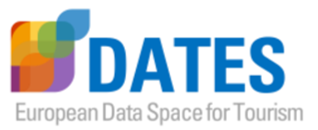
Semiconductors – ALLPROS.eu
Reinforcing Europe’s competitiveness in processors and semiconductors
ALLPROS.eu
Reinforcing Europe’s competitiveness in processors and semiconductors
ALLPROS.eu is a project aimed at strengthening Europe’s competitiveness in processors and semiconductors. It coordinates the EU Industrial Alliance through a secretariat and focuses on three pillars: establishing and maintaining the secretariat, creating an observatory for stakeholder engagement, and providing communication and event management for the Alliance. The project includes provision of a secretariat with a web platform and social media presence, engagement of target stakeholders through an observatory, and the consolidation of relevant information. The consortium consists of Trust-IT, Open Forum Europe, RISC-V, IDC, and White Research, with support from an Expert Advisory Group. The project will also deliver annual events, webinars, impact reports, and a Recommendations Roadmap, with a goal of building a community of 1,500+ members.
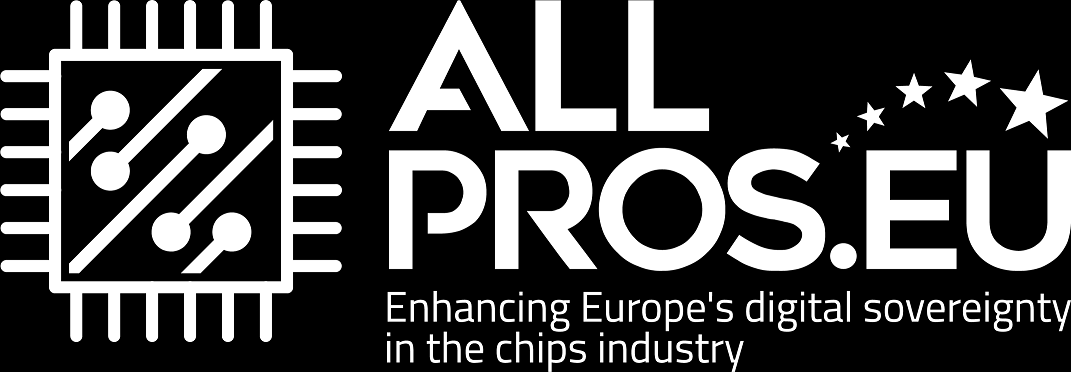
Big Data – European Data Market
Study on behalf of the European Commission DG Connect
European Data Market
Study on behalf of the European Commission DG Connect
The main goal of the study is to measure the European data economy to support the EC’s Data Value Chain policy. The policy created an innovative data ecosystem of stakeholders, enables the development of European data-driven competitiveness, and fosters commercial and social added value derived from intelligent use, management and reuse of data sources in Europe. The study aims to periodically measure and assess the data market in Europe through the European Data Market (EDM) Monitoring Tool, designed and implemented by the IDC-Open Evidence consortium. This is done to deliver factual evidence, data and qualitative insights on the diffusion of data-driven innovation in Europe, assess its actual and potential impacts on growth and jobs, and investigate the framework conditions influencing the development of the European data economy.
The study has three objectives:
- Analysing issues for the development of the data ecosystem, providing data market stories based on factual evidence, case studies and complementary data to the EDM indicators
- Mapping and visualising the stakeholders populating the EU data market

Semiconductors – Semiconductors Market Data by Feature Size, Sector and Region
Semiconductors Market Data by Feature Size, Sector and Region
The European Commission, Directorate-General for Communications Networks, Content and Technology (DG-CNECT), has commissioned a groundbreaking study on the semiconductor market, titled “Semiconductors Market Data by Feature Size, Sector and Region” (CNECT/2022/MVP/0084). The study aims to establish a comprehensive methodology for acquiring and analyzing market data. Its primary goal objective is to monitor and evaluate European progress in meeting the Digital Decade target of achieving 20% of global semiconductor production in value. The study, started on January 2023, will be closed around June 2025.
The global semiconductor value chain has experienced significant challenges in recent years due to the impact of the Covid-19 pandemic and the disruptions caused by the war in Ukraine. Despite strong growth in demand, the industry’s response has been slow, leading to a substantial depletion of already limited inventory. Consequently, shortages of semiconductor components have emerged as a harsh reality, with far-reaching implications across critical sectors such as medical devices, broadband communication devices, and automotive components. Europe, in particular, has been heavily impacted, with the European Commission estimating that a large percentage of European businesses have been adversely affected, either directly or indirectly, by the ongoing chip shortage.
The study’s specific objectives are threefold:
- Designing and implementing an actionable and data-driven methodology to assess Europe’s role in the semiconductor industry. This will enable policymakers to make informed decisions and devise effective strategies to enhance Europe’s semiconductor capabilities.
- Providing accurate and research-based qualitative and quantitative analysis of the semiconductor market, encompassing various segments of the value chain across different regions worldwide. The study will offer insights into market trends, challenges, and opportunities, enabling stakeholders to navigate the complex landscape effectively.
- Conducting primary and secondary research to track the progress of the EU Digital Decade’s targets. This will involve comprehensive data collection and analysis to evaluate Europe’s advancements in semiconductor production and gauge its alignment with the ambitious Digital Decade goals.
The study is anticipated to shed light on key factors influencing the semiconductor market, including technological advancements, policy frameworks, and global supply chain dynamics. By comprehensively examining Europe’s semiconductor landscape, the research will contribute to formulating strategies and policies that foster growth, innovation, and resilience in this critical industry.
The findings of this study hold great significance for European policymakers, industry stakeholders, and the broader global semiconductor community. As the world grapples with the consequences of the ongoing chip shortage, the research aims to provide valuable insights that will help mitigate future disruptions and support the European Commission’s commitment to achieving a robust and sustainable semiconductor industry.

UNLOCK – UNLOCK CEI
Unlocking the Cloud Edge IoT demand potential in Europe
UNLOCK CEI
Unlocking the Cloud Edge IoT demand potential in Europe
UNLOCK CEI’s ambition is to UNLOCK the potential for accelerating the deployment of the Cloud-to-Edge-IoT (CEI) computing continuum in Europe by focusing on the demand-side drivers and challenges to identify technology-driven innovation and business opportunities driving demand value chains. The project represents the CEI demand constituency; provide insights and guidance to the Horizon Europe R&D projects in this domain; and contribute to a proactive dialogue with the supply stakeholders to encourage the development of an open European CEI ecosystem. It focuses on emerging value chains where investment is needed to foster the deployment of the Cloud-to-Edge-IoT continuum through the forthcoming CEI large scale pilots.
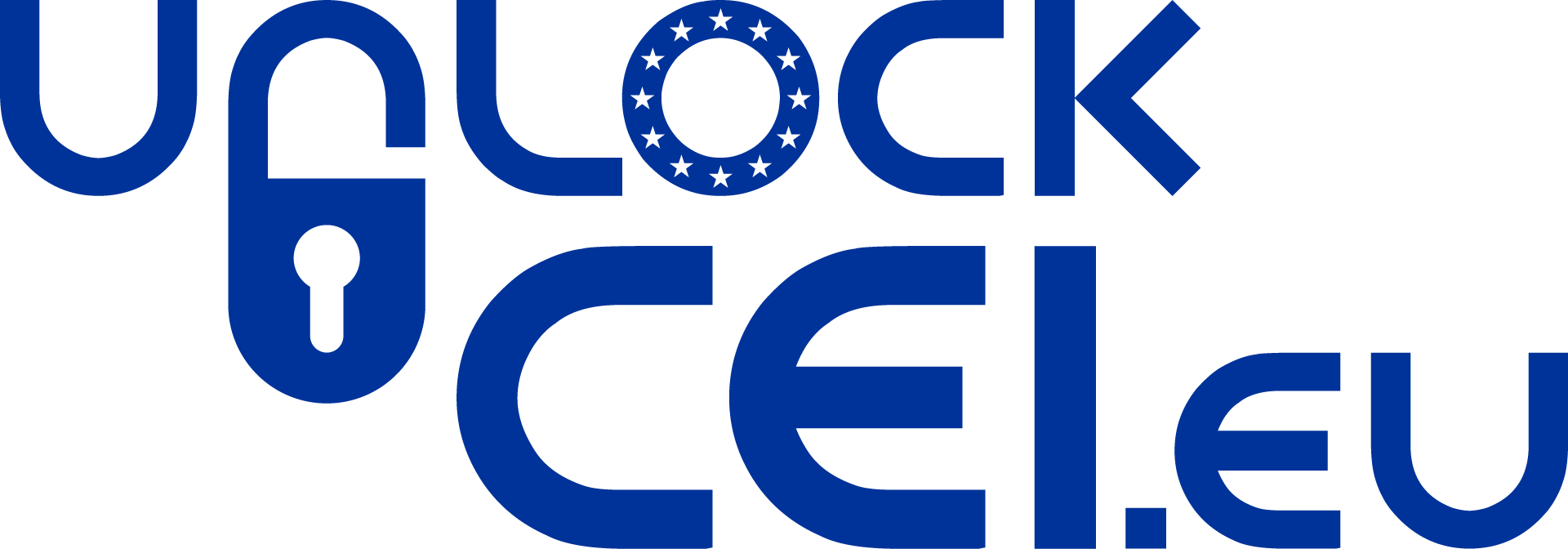
Digital Transformation (DX) – ATI
Advanced Technologies for Industry
ATI
Advanced Technologies for Industry
Study on behalf of EASME/ COSME, 2019 – 2021
The EU’s industrial policy approach promotes the creation of a competitive European industry. In order to properly support the implementation of policies and initiatives, a systematic monitoring of technological trends and reliable, up-to-date data on advanced technologies is needed. To this end, the Advanced Technologies for Industry (ATI) project has been set up. It provides policymakers, industry representatives and academia with:
- Statistical data on the creation and use of advanced technologies (including information on enabling conditions such as skills, investment or entrepreneurship).
- Analytical reports on technological trends, sectoral insights and products.
- Analyses of policy measures and policy tools related to the uptake of advanced technologies.
- Analyses of technological trends in competing economies such as in the US, China or Japan.
- Access to technology centres and innovation hubs across EU countries.
All this information is available through the new Advanced Technologies for Industry Website that merges the previous KETs Observatory and Digital Transformation Monitor initiatives. The project focuses on the advanced technologies that will enable and help industries to successfully manage a shift towards a low-carbon and knowledge-based economy. The following 16 advanced technologies have been identified:
- Advanced Manufacturing Technology
- Advanced Materials
- Artificial Intelligence
- Augmented and Virtual Reality
- Big Data
- Blockchain
- Cloud Computing
- Connectivity
- Industrial Biotechnology
- Internet of Things
- Micro- and Nanoelectronics
- Mobility
- Nanotechnology
- Photonics
- Robotics
- Security

Digital Transformation (DX) – OPEN DEI
Aligning Reference Architectures, Open Platforms and Large-Scale Pilots in Digitising European Industry
OPEN DEI
Aligning Reference Architectures, Open Platforms and Large-Scale Pilots in Digitising European Industry
OPEN DEI will be an essential pillar of the implementation of Digitising European Industry policies by addressing in particular the support to pilot activities and knowledge transfer across different sectors. It will provide the necessary measures, channels and mechanisms to ensure cooperation between pilot projects so that synergies can be exploited, knowledge can be shared, and impact is maximized.
As regards Platform Building, OPEN DEI will provide a reference architecture, a set of open source reference implementations and an Industrial Data Platform; in the framework of Large Scale Piloting it will provide a digital maturity model, a set of assessment methods and a migration journey benchmarking tool; in the field of Ecosystem Building it will implement an Innovation and Collaboration Platform, a pan-EU network of Industrial DIHs, an Industrial Skills catalogue and observatory; in the field of Standardisation it will deliver a cross-domain survey, a promotion and implementation plan and a strategic alliance with existing EU and International SDOs.

Big Data – EUHubs4Data
European Federation of Data-Driven Innovation Hubs

EUHubs4Data
European Federation of Data-Driven Innovation Hubs
H2020 project – 2020 –2023
Most of Europe’s SMEs lag behind in data-driven innovation. To tackle this problem, the EU-funded EUHubs4Data project will build a European federation of Data Innovation Hubs based on existing key players in this area and connecting with data incubators and platforms, SME networks, AI communities, skills and training organisations and open data repositories. A European catalogue of data sources and federated data-driven services and solutions will be made accessible to European SMEs, start-ups and web entrepreneurs through the Data Innovation Hubs. Cross-border and cross-sector data-driven experimentation will be facilitated through data-sharing, as well as data- and service interoperability, becoming a reference instrument for growth in a global data economy and contributing to the creation of common European data spaces.
Artificial Intelligence (AI) – AI-SPRINT
AI in Secure Privacy-preserving Continuum
AI-SPRINT
AI in Secure Privacy-preserving Continuum
H2020 project – 2020 –2023
Artificial Intelligence, to become fully pervasive, needs resources at the edge of the network. The cloud can provide the processing power needed for big data, but edge computing is close to where data are produced and therefore crucial to their timely, flexible, and secure management. AI-SPRINT will define a framework for developing AI applications in computing continua, enabling a finely-tuned tradeoff between performance (e.g. in terms of end-to-end latency and throughput) and AI model accuracy, while providing security and privacy guarantees.
AI-SPRINT outcomes are: i) simplified programming models to reduce the steep learning curves in the development of AI software in computing continua; ii) highly specialized building blocks for distributed training, privacy preservation and advanced machine learning models, to shorten time-to-market for AI applications; iii) automated deployment and dynamic reconfiguration to decrease the cost of operating AI software.

5G – 5G EVE
5G European Validation Platform for Extensive Trials
5G EVE
5G European Validation Platform for Extensive Trials
H2020 Project, 2018–2021
We are at the “eve” of a fundamental transition in 5G, and 5G EVE aims to create the foundations for a pervasive rollout of end-to-end 5G networks in Europe. 5G EVE supports this fundamental transition by offering vertical industries and all 5GPPP Phase 3 projects facilities to validate their network KPIs and services. 5G EVE aims to create synergies between a significant number of facilities that will ensure sustainability and impact in terms of exploitation. 5G EVE will impact standards, and has the potential and strategy to ensure the sustainability of the facility beyond the project lifetime, therefore becoming a cornerstone of the 5G PPP programme and beyond.
The 5G EVE end-to-end facility consists of the interconnection of four 5G site facilities (France, Spain, Italy, Greece), which have been selected because of their considerable previous work with vertical industries and standardisation bodies, on top of their 5G technology competences. The 5G EVE facility will enable experiments with heterogeneous access, including NR, licensed/unlicensed spectrum and advanced spectrum management, as well as mobile edge computing, backhaul and core/service technologies. It will also enable site interworking and multisite/domain/technology slicing/orchestration.

Cloud Computing – H-CLOUD
Horizon Cloud
H-CLOUD
Horizon Cloud
H2020 project – 2020 –2021
H-CLOUD leads coordination and support activities for the consolidation and growth of the Cloud Computing research and innovation community in Europe, bringing together innovators, policy makers, Cloud Computing research, industry and users into an open, participatory and sustainable forum. The H-CLOUD Forum will strengthen collaboration to address challenges and opportunities at research, technological, policy, standardisation and organisational level to unlock the potential of cloud computing for all European stakeholders.
H-CLOUD will provide a rich set of collaborative content, tools and actions to overcome fragmentation and increase collaboration in Europe and beyond, while aligning on a common direction to help creating a Cloud agenda for the future of Europe. To this purpose H-CLOUD will lead the definition of the Strategic Innovation and Research Agenda for Cloud Computing that will provide recommendations and strategies to guide the future of European Cloud services and their market regulations. This will encompass the creation of a comprehensive knowledge base, the H-CLOUD LANDSCAPE, including an online catalogue of stakeholders, initiatives, projects, businesses, policies, success stories and best practices that will be made accessible to all H-CLOUD FORUM participants.

Digital Transformation (DX) – eGovernment Benchmarking
eGovernment Benchmarking
Benchmarking the Digital Transformation of the Public Sector in European Countries
European Commission Framework Contract, 2005-2022
Since 2001, the EC’s annual eGovernment Benchmark monitoring instrument has provided insight into the use of information and communications technologies in the public sector. It is an internationally recognised benchmark in the field of egovernment services of Member States. The highly collaborative approach between the EC and Member States has ensured the sharing of good practices and a significant improvement in egovernment services over the years. IDC4EU has been involved in the benchmarking of egovernment in Europe on behalf of DG Connect since 2005, first delivering pilot studies (with RSO) and then with Capgemini in the benchmarking framework, contributing substantially to the renewal of the methodological approach and to the design and implementation of mystery shopping. IDC was primarily responsible for the development of the eprocurement benchmarking methodology, first for the DG Information Society and then as an independent benchmark for DG Markt in 2011–2012.
The main objective is to provide a quantitative overview of the status of modernisation in the public sector in 35 countries and disseminate this to interested stakeholders and to the public in general. This involves data collection, workshops and reporting, aimed at supporting the monitoring of innovation in the public sector.
The eGovernment Benchmark framework provides each country under assessment with an ideal opportunity to determine its strengths and weaknesses, and relate these to its own egovernment innovation strategy. In this way, each country can gauge whether it is on track to achieve its goals. It enables countries to identify opportunities for improvement and look at ways to potentially reconsider policy decisions. The primary goal of the exercise should not be to score 100% across all indicators, but to use the tool and its outcomes to determine where follow-up action is required in the context of the national egovernment strategy. It is not a prize-winning competition, but an instrument to learn and improve.

Digital Transformation (DX) – ELISE
Leveraging the Power of Location Information and Technologies to Improve Public Services at Local Level
ELISE
Leveraging the Power of Location Information and Technologies to Improve Public Services at Local Level
The project “ELISE Lot 1 – Leveraging the power of location information and technologies to improve Public Services at Local Level: An EU-wide Analysis” is part of a broader effort and reorientation of the JRC and Digital Economy Unit (JRC.B.6) in particular. It falls under the ISA Action ELISE: European Location Interoperability Solutions for e-Government.
Aim and expectations:
- To provide practical guidance, convincing value propositions, and a list of priorities for further policy action, which help to improve the quality and delivery of public services by the meaningful and innovative use of location data and technology at local and regional level.
- Conduct an in depth mapping and critical analysis of recent initiatives, emerging solutions and their possible impacts, thereby organically structuring the information available at local and regional level, and investigating new practices – together with their replicability and scalability potentials – and suggest possible future pathways for the evolution of public services in the EU.

Other – Study on Service Portfolio Development and Business Case for CEF Automated Translation
Language Technologies
Study on Service Portfolio Development and Business Case for CEF Automated Translation
Language Technologies
Study on behalf of the European Commission DG Connect
The study results have helped the European Commission to develop the service portfolio of the CEF (Connected Europe Facility) Automated Translation platform, aimed at informing potential policy development activities.
Lot 1 carried out an analysis of European language technologies (LTs) in terms of supply and demand and identified gaps, assessed the use of LTs by public services in the EU and in the individual Member States, and developed a business case for the CEF Automated Translation services by defining a CEF etranslation position and value proposition that considers the context of the European LT market/ecosystem
Lot 2 aimed to contribute to the further development of the Automated Translation “core service platform” towards an infrastructure for “full multilingual enablement (beyond simple translation) of online services linked to CEF DSIs”. The specific objectives of the study were to:
- Gather the additional needs of CEF DSIs, public services and infrastructures linking to CEF DSIs and other services with cross-border/pan-European relevance on automated translation services (beyond machine translation alone)
- Analyse the range of services that could extend CEF Automated Translation, including how they could be connected and offered as part of or within CEF Automated Translation to its user base in a sustainable way
- Support CEF DSIs and related systems with a view to maximising their use of CEF Automated Translation services (to advise and provide technical assistance to CEF DSIs and connected systems on automated translation services available through the platform)

Big Data – DataBench
Evidence-Based Big Data Benchmarking to Improve Business Performance
DataBench
Evidence-Based Big Data Benchmarking to Improve Business Performance
H2020 Project, 2018–2020
DataBench aims to design a benchmarking process to help European organisations develop Big Data technologies (BDTs) to constantly improve their performance by measuring their technology development against a set of business parameters. DataBench investigates existing Big Data benchmarking tools and projects, identifies the main gaps and provides a robust set of metrics to compare the technical results from those tools. The project addresses the gap in the current benchmarking community’s activities by providing certifiable benchmarks and evaluation schemes for BDT performance.
The DataBench framework comprises a complete set of metrics for BDT assessment, including:
- Multiple analysis to assess the European and industrial significance of the BDT examined by the project
- The DataBench Toolbox to connect and evaluate external initiatives
- The DataBench Handbook to provide guidelines on how to use the project’s results, framework and toolbox, with a description of metrics implementation and benchmarks.

Big Data – e-SIDES
Ethical and Societal Implications of Data Science
e-SIDES
Ethical and Societal Implications of Data Science
H2020 Project, 2017–2019
The main objective of the e-SIDES Coordination and Support Action (CSA) is to complement the research on privacy-preserving Big Data technologies by analysing, mapping and clearly identifying the main societal and ethical challenges emerging from the adoption of Big Data technologies, conforming to the principles of responsible research and innovation.
Data-driven innovation is transforming society and the economy. Although there are potentially enormous economic and social benefits, this innovation also brings new challenges for individual and collective privacy and security, as well as democracy and participation.
e-SIDES will set up and organise a sustainable dialogue between industry, research and social actors, as well as networking with the main research and innovation actions and LSPs and other Framework Programme projects interested in these issues. It will investigate stakeholders’ concerns and collect their input, framing the results in a clear conceptual framework showing the potential trade-offs between conflicting needs and providing a basis to validate privacy-preserving technologies. It will prepare and disseminate community-shared conclusions and recommendations highlighting the best way to ultimately build the confidence of citizens and businesses in Big Data and the data economy.

5G – Global5G.org
Global Vision, Standardisation and Stakeholder Engagement in 5G
Global5G.org
Global Vision, Standardisation and Stakeholder Engagement in 5G
H2020 Project, 2017–2019
Global5G.org was established to provide a European-led contribution to the international vision of 5G networks, addressing a large set of requirements from different vertical industries.
Global5G.org plugs the gap in the effort to implement a European “5G PPP vision” in an international context, engaging all relevant stakeholders and with a specific focus on vertical markets, standardisation, and policy and regulation. As part of the project’s work plan, a collaboration web platform will showcase and monitor EU and international initiatives and joint R&I programmes with regards to 5G capabilities, standardisation, verticals and related spectrum. Through its standardisation tracker, it will monitor standardisation efforts related to specific vertical industry requirements, driving implementation and sustainability for a successful 5G deployment.
Global5G.org also analyses the sustainability strategies and identifies new business models, taking into consideration private and public investments through pragmatic engagement drivers. It will also report on research findings on standardisation, assess the opportunities for market uptake with a close eye on the selected vertical markets and map them into the right stakeholder groups.

Internet of Things (IoT) – CREATE-IoT
Cross-Fertilisation Through Alignment, Synchronisation and Exchange for IoT
CREATE-IoT
Cross-Fertilisation Through Alignment, Synchronisation and Exchange for IoT
H2020 Project, 2017-2020
CREATE-IoT aimed to stimulate collaboration between IoT initiatives, foster the take-up of IoT in Europe, and support the development and growth of IoT ecosystems based on open technologies and platforms. This required synchronisation and alignment on strategic and operational terms through frequent, multidirectional exchanges between the various activities under the IoT Focus Areas (FAs). It also required cross-fertilisation of the various IoT Large Scale Pilots (LSPs) for technological and validation issues of common interest across the application domains and use cases.
The project fostered the exchange of information on the requirements for accompanying legal measures, development of common methodologies and KPIs for design, testing and validation, and for success and impact measurement, coordination of pilot activities and transfer to other pilot areas, facilitating access for IoT entrepreneurs/API developers/makers and SMEs, including a combination of ICT and initiatives for artists. CREATE-IoT built strong connections with Member States’ initiatives and other initiatives, and transferred learning points to the broader IoT policy framework that includes contractual PPPs (e.g., Big Data, factories of the future, 5G infrastructure), joint technology initiatives (e.g., ECSEL), European innovation partnerships (e.g., on smart cities), as well as other FAs (e.g., on autonomous transport). It maintained a coordinated working relationship with U4IoT, focused on RRI-SSH (Responsible Research and Innovation — Social Sciences and Humanities).

Other – HUB4NGI
An Innovation Hub for the Next-Generation Internet
HUB4NGI
An Innovation Hub for the Next-Generation Internet
H2020 Project, 2017–2018
Started in January 2017, HUB4NGI was the first Coordination and Support Action dedicated to transforming the Next-Generation Internet initiative into an increasingly dynamic, collaborative, vibrant and participatory research and innovation ecosystem. HUB4NGI aimed to offer a collaborative platform to effectively support and coordinate activities across the whole NGI context by combining knowledge, tools and processes to reach and engage top-notch internet researchers and innovators. IDC was responsible for defining a methodology to collect and assess the information in the NGI domain by defining the exact models and templates as well as a database structure to collect data. IDC actively contributed to the definition of procedures to analyse data as well as a KPI infrastructure to measure and assess the initiatives and resources available to stakeholders in the domain.
Key objectives for the project were to:
- Set out a vision for NGI, defining the research scope and priorities, building the community, identifying key players, etc.
- Develop an NGI road map and policy recommendations to help shape and define the 2025 vision
- Support the requirements of the Next-Generation Internet Experimentation for 2020–2025

Cloud Computing – Switching Between Cloud Providers
Switching Between Cloud Providers
Policy Efforts to Avoid Vendor Lock-In in Cloud Computing
Study on behalf of the European Commission DG Connect
The main objective of this study was to gather evidence on practices relating to switching of cloud service providers, with a specific focus on the barriers potentially preventing data portability and/or application portability, which may reduce users’ choices, and the policy measures needed to overcome these barriers. The study provided practical and evidence-based recommendations supporting policy making aimed at facilitating the switching of cloud service providers by business and private users. It:
- Collected evidence on the issues related to portability when switching cloud service providers
- Provided empirical findings about the main causes of these issues and their suggested countermeasures, identifying good practices
- Organised the interaction with the community of cloud stakeholders
- Assessed measures to enable cloud service customers to ensure portability and enable providers to offer portability, including extending the new data portability right created by the GDPR to non-personal data and to all categories of users
- Identified, analysed and assessed the potential competitiveness, innovation and economic impacts on the development of the cloud market of the introduction of the mandatory right to data portability and mandatory right to application portability
- Collected feedback through a stakeholder workshop to validate the study’s conclusions
- Drew up conclusions and provided practical guidance on the best ways to enable portability in the cloud services market
- Offered recommendations on regulatory and non-regulatory measures to avoid cloud user lock-in and enable the balanced development of the cloud computing market in Europe

Big Data – Impact Evaluation of the Open Data Incubator Europe
Impact Evaluation of the Open Data Incubator Europe
Assessing the impacts and influence of the Open Data Incubator Europe
Impact Assessment Study for the Open Data Institute – 2017
IDC carried out an independent impact assessment for ODINE’s incubation programme to evaluate whether ad to what extent ODINE achieved its main objective to attract and fund a group of innovative digital companies with original business ideas about Open Data and accelerate their time to market and chances of success. The assessment was carried out in March-April 2017 and was based on data collection through an independent survey of the 57 funded companies and 10 non-funded companies, the information published by the companies, ODINE’s databases and documents repositories. IDC developed a forecast model estimating potential revenues, jobs created and the number of customers of these companies to 2020, under a main and a counterfactual scenario. The results were compared with the impact assessment of the FIWARE Accelerator Programme, which funded over 1000 startups and SMEs, carried out by IDC in 2014-16.
Through this impact assessment, IDC provided answers to these key research questions:
- What impact has ODINE had on company growth?
- How successful were the business plans of ODINE’s participants?
- What is the benefit of open data to participant businesses?

Explore European Government Consulting
IDC4EU Latest research offers full access to our research materials and documents. Organized by research domain and project, they are regularly updated to provide the latest insights.
eGovernment Benchmark 2022
Aug 28, 2022
The results of the new European Data Market study are out
Jun 30, 2022
Skills for Data: How to Overcome Skills Gaps and Develop Competent Data Professionals
Dec 01, 2021
eGovernment benchmark 2021
Nov 22, 2021
JRC State of the Art Report: Leveraging the Power of Location Information and Technologies to Improve Public Services at the Local Level
Oct 28, 2021
Data-Driven Stories: Data Sharing in Construction
May 19, 2021
European Data Market 21-23, Second Report on Facts & Figures
May 07, 2021
European Data Market 21-23, Digital Sovereignty in the EU: A convoluted Journey
May 07, 2021
European Data Market 21-23, Skills for Data: How to Overcome Skills Gaps and Develop Competent Data Professionals
May 07, 2021
Success Stories and Good Practices
Dec 23, 2020
Evaluation of Business Performance
Oct 31, 2020
Success Stories and Best Practice Guide
Oct 22, 2020